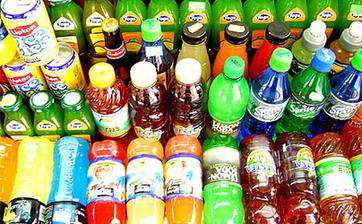New research suggests that excess sugar - especially the fructose in sugary drinks - might damage your brain. Researchers using data from the Framingham Heart Study (FHS) found that people who drink sugary beverages frequently are more likely to have poorer memory, smaller overall brain volume, and a significantly smaller hippocampus - an area of the brain important for learning and memory.
But before you chuck your sweet tea and reach for a diet soda, there's more: a follow-up study found that people who drank diet soda daily were almost three times as likely to develop stroke and dementia when compared to those who did not.
Researchers are quick to point out that these findings, which appear separately in the journals Alzheimer's & Dementia and Stroke, demonstrate correlation but not cause-and-effect. While researchers caution against over-consuming either diet soda or sugary drinks, more research is needed to determine how - or if - these drinks actually damage the brain, and how much damage may be caused by underlying vascular disease or diabetes.
For the first study, published in Alzheimer's & Dementia on March 5, 2017, researchers examined data, including magnetic resonance imaging (MRI) scans and cognitive testing results, from about 4,000 people enrolled in the Framingham Heart Study's Offspring and Third-Generation cohorts. (These are the children and grandchildren of the original FHS volunteers enrolled in 1948.) The researchers looked at people who consumed more than two sugary drinks a day of any type - soda, fruit juice, and other soft drinks -- or more than three per week of soda alone. Among that "high intake" group, they found multiple signs of accelerated brain aging, including smaller overall brain volume, poorer episodic memory, and a shrunken hippocampus, all risk factors for early-stage Alzheimer's disease. Researchers also found that higher intake of diet soda - at least one per day - was associated with smaller brain volume.
In the second study, published in Stroke on April 20, 2017, the researchers, using data only from the older Offspring cohort, looked specifically at whether participants had suffered a stroke or been diagnosed with dementia due to Alzheimer's disease. After measuring volunteers' beverage intake at three points over seven years, the researchers then monitored the volunteers for 10 years, looking for evidence of stroke in 2,888 people over age 45, and dementia in 1,484 participants over age 60. Here they found, surprisingly, no correlation between sugary beverage intake and stroke or dementia. However, they found that people who drank at least one diet soda per day were almost three times as likely to develop stroke and dementia.
Although the researchers took age, smoking, diet quality, and other factors into account, they could not completely control for preexisting conditions like diabetes, which may have developed over the course of the study and is a known risk factor for dementia. Diabetics, as a group, drink more diet soda on average, as a way to limit their sugar consumption, and some of the correlation between diet soda intake and dementia may be due to diabetes, as well as other vascular risk factors. However, such preexisting conditions cannot wholly explain the new findings.
